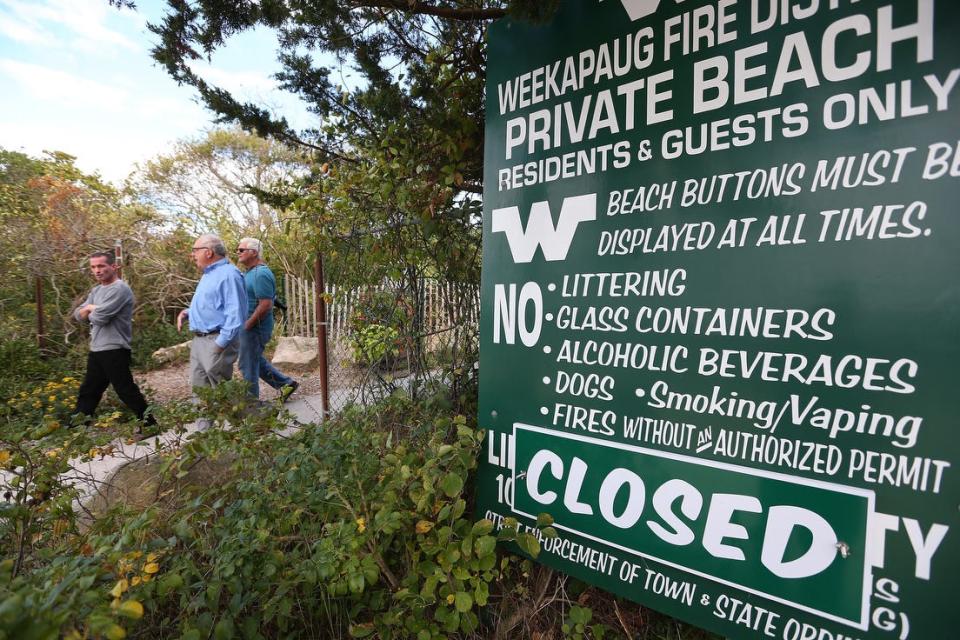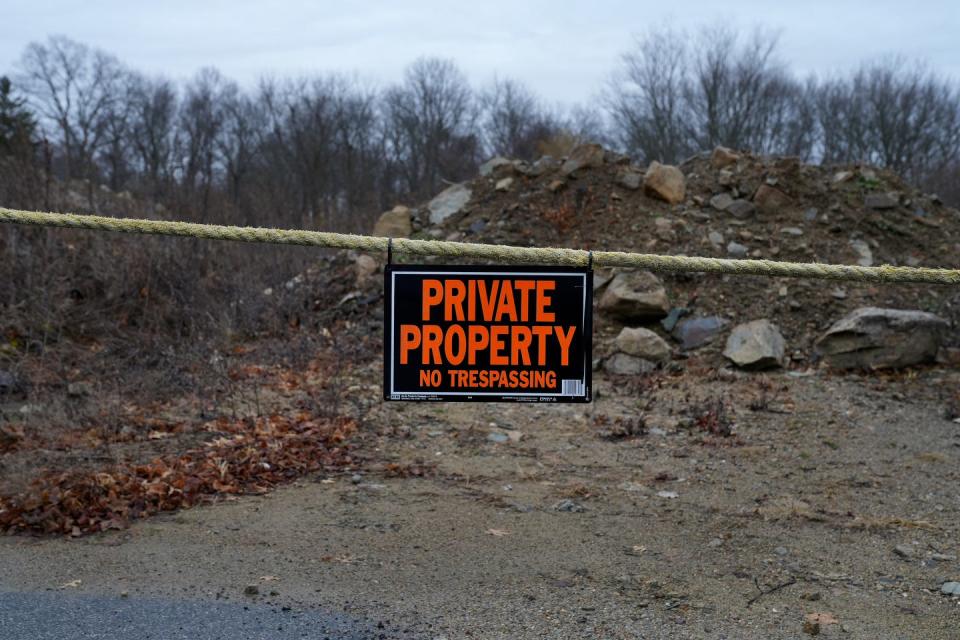See 'No Trespassing' signs blocking a public right of way? This bill takes aim at them
Dan King of Westerly recalls going down to the beach with his father in the 1950s and seeing a “Private Beach — Stay Out” sign hanging from a tree.
“We’d rip it down, use it for kindling and firewood, and then the next week do the same thing all over again,” he testified before the House Judiciary Committee on Tuesday.
To King, legislation to crack down on such misleading signs is “so overdue.”
House Bill 5700, introduced by Rep. Terri Cortvriend, D-Portsmouth, would impose a $500 fine for "signage that deters the public from using a public right-of-way."
It’s one of two bills that the General Assembly is considering this session that deal with public rights of way.
While the most closely watched shoreline access bills being debated this year involve lateral access, meaning your right to walk along the beach, rights of way provide perpendicular access, ensuring that you can get down to the beach in the first place.
No parking signs: Waterfront Warwick neighborhoods are full of 'No Parking' signs. Many aren't legal.

Going after 'No Trespassing' signs on public rights of way
Cortvriend said on Tuesday that her bill is designed to ensure that local police departments can take action against misleading signs that are discouraging people from using public rights of way.
Currently, dealing with rights of way that have been obstructed falls to the Coastal Resources Management Council, “and we all know that they are under-resourced,” she said.
She added that she would like to amend the bill to raise the fines to $1,000, in line with CRMC regulations.
Save The Bay and New England Backcountry Hunters and Anglers were among those expressing support for the bill.
The American Civil Liberties Union of Rhode Island suggested that the bill be amended to make clear that "the signage must attempt to mislead the public into falsely believing they do not have a right to access the right-of-way."
The First Amendment does not protect a property owner who "posts a sign falsely claiming that the right-of-way is private land, or that threatens with arrest anybody making use of the access way," the ACLU wrote.
"But a sign erected on the property of a homeowner that, say, asks beachgoers not to use the right-of-way during certain hours, might deter some people from entering the right-of-way, but it is a message that, we submit, cannot be punished under the First Amendment.”
Identifying rights of way on private property
A second bill, House Bill 5116, would allow the state Department of Environmental Management to “recognize and identify public rights-of-way ... over land owned by a private party.”
Introduced by Rep. Joseph McNamara, D-Warwick, the bill is a response to the ongoing fight over the Pawtuxet River Trail, which runs across private property but has been used by the public for decades.
In similar situations — where a trail used for at least a decade is blocked after a property sells — the DEM could deem it to be a right of way. There would be a three-year window to do so.
The bill stipulates that recognizing or identifying public rights of way is not a condemnation or a taking. At a Thursday hearing of the House Environment and Natural Resources Committee, Rep. Patricia Morgan, R-West Warwick, took issue with that claim.
“How can you not say that’s a taking?” she said. “ Someone’s bought it. It’s their private property at that point, and, after the fact, we’re saying that we want to use it for a public purpose.”

Morgan asked whether property owners would get reimbursed for the fair market value of the land where a right of way applies.
“No,” McNamara responded. “It’s been used for decades, and if they want compensation, there is a procedure — they can go through the administrative procedures act.”
The DEM also expressed concerns about the bill, saying in written testimony that it would conflict with a long-standing statute that “excludes the right of footway from being acquired by prescription or adverse use.”
It’s also unclear how many potential rights of way exist, and the DEM may not have enough resources to carry out the work that would be required, wrote Ryan Mulcahey, the agency’s director of legislative affairs.
Currently, the CRMC is in charge of identifying public rights of way. McNamara said in January that he had assigned the responsibility to the DEM in his bill because of the CRMC’s track record of controversies.
This article originally appeared on The Providence Journal: Groundless 'No Trespassing' signs would trigger fines under RI bill

